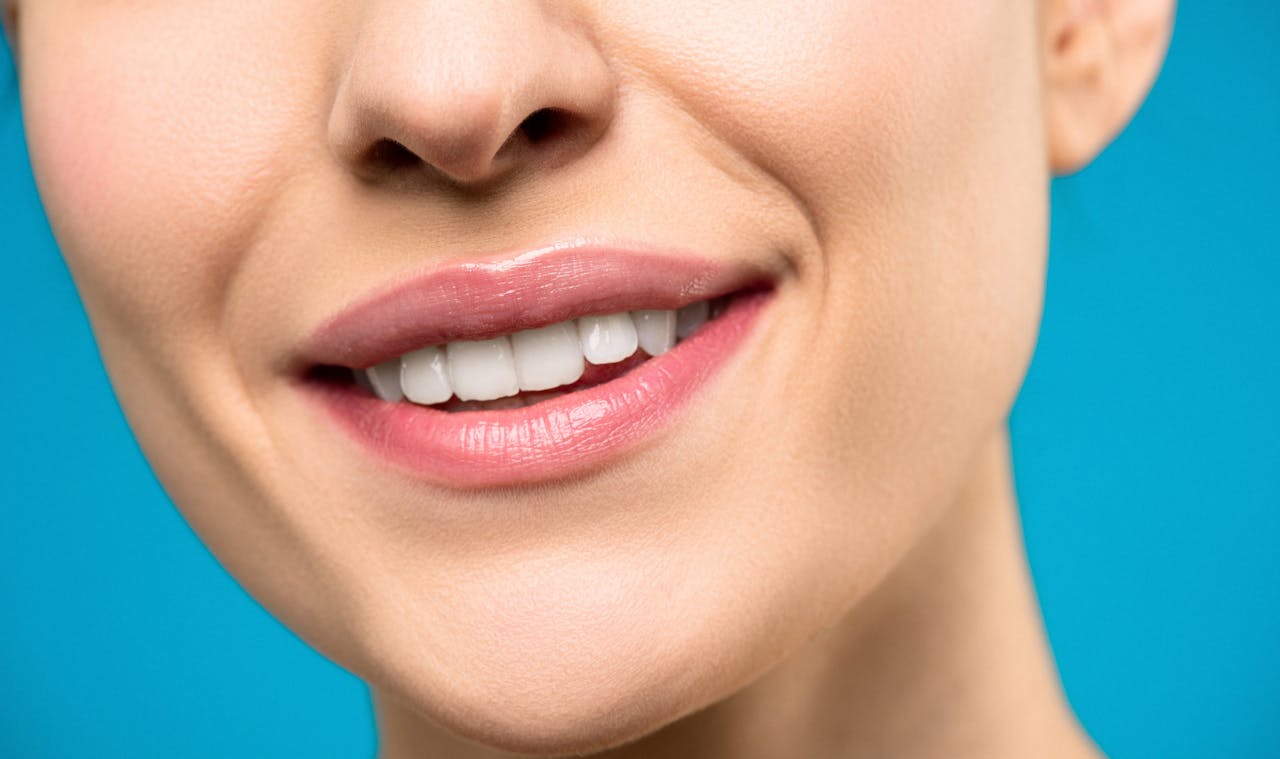Oral health isn’t just about having a nice smile. When it’s neglected, it can trigger biological processes that affect your gut microbiome and eventually your entire body. It may sound unbelievable, but our bodies are that complex and connected.
In fact, 61 types of bacteria have been found to live both in the mouth and in the gut of the same person.
Let’s explore how your mouth and gut are connected, how bacteria from your mouth can “travel” to your gut, and what you can do to stop it.
What’s Happening in Your Mouth?
Whether you’re resting, eating, or sleeping, your mouth is full of activity. It’s home to many microorganisms, together called the oral microbiota. Interestingly, people having exactly the same microbiota is something that doesn’t happen. Research shows this is likely influenced by:
- diet,
- environment,
- genetics, and
- exposure to microbes early in life.
💡 Microbiota refers to the community of microorganisms (bacteria, fungi, viruses, and archaea) living in a specific part of the body.
There are over 700 strains of bacteria in the mouth including one of the most well-known is Streptococcus. Because it’s easy to collect samples from the mouth, oral microbiota is often studied and plays a key role in oral health.

Gut Microbiome: What’s Inside Our Digestive System?
The gut microbiome is made up of microorganisms living in our intestines, and it changes as we grow. This tiny community plays a big role in:
- digesting food,
- building immunity,
- protecting against illness, and
- keeping the body in balance.
💡Dysbiosis is an imbalance in the gut microbiome that can lead to serious issues. A 2022 review article explained that when this balance is disturbed, harmful substances or microbes can leak into the bloodstream.
This can lead to chronic diseases such as inflammatory bowel disease, obesity, diabetes, and even mental health conditions.
The Mouth–Gut Connection
Everything in the body is connected, including your mouth and intestines. The health of one can affect the other. Microorganisms from the mouth, mostly bacteria, have been linked to systemic infections.
💡 A systemic infection affects more than one part of the body and can spread through the blood or lymph to other organs.
Chronic Periodontitis and Gut Dysbiosis
Periodontitis is a long-term gum disease that damages the tissues supporting the teeth. It usually happens due to poor oral hygiene or smoking, and it’s linked to an imbalanced oral microbiome. Certain bacteria that grow in the mouths of people with periodontitis, like Filifactor alocis and Parvimonas micra, can reach the digestive tract via saliva.
These bacteria can survive in acidic environments like the stomach and reach the intestines, where they disrupt the microbiome, damage the intestinal lining, and cause inflammation.
In fact, studies on people with both inflammatory bowel disease (IBD) and periodontitis show that their oral and gut bacteria are nearly identical, proving that oral bacteria can settle in the gut and cause problems.
Consequences of Gut Microbiota Imbalance
Besides inflammatory bowel diseases, gut microbiome imbalance can trigger other inflammatory diseases. When bacteria from the gut move into other organs, they start acting “hostile” and release toxins.
These toxins activate the immune system, leading to inflammation in specific organs or throughout the body.
How to Protect Your Gut from Oral Health Issues
While we can’t control everything happening in our bodies, we can manage what’s going on in our mouths, and that can protect our gut. Here are a few practical tips:
✅ Keep up with your oral hygiene
- Brush your teeth at least twice a day for two minutes.
- Use dental floss because bacteria love to grow between teeth.
- Don’t forget to brush your tongue too!
🦷 Visit your dentist regularly
Yes, the sound of the dental drill isn’t fun. But regular visits help detect and treat problems like gum inflammation early before bacteria can spread to your gut. So be brave and see your dentist!
🥦 Eat well
- Add natural probiotics like yogurt, kefir, and oats.
- Cut back on processed sugars because oral bacteria love sugar.
- Drink plenty of water as it helps saliva production, your first line of defense.
🧬 Try oral probiotics
These are probiotics made for the mouth, often in lozenge form. They help reduce bad bacteria and restore balance in the oral microbiome.
Your oral health can seriously affect your gut microbiome. When bad bacteria from the mouth reach the gut, they can cause a number of health issues. The good news? It doesn’t take much regular brushing (even that back tooth!), flossing, healthy eating, and dentist checkups can help protect not just your smile, but your whole body.
References
Deo PN, Deshmukh R. Oral microbiome: Unveiling the fundamentals. J Oral Maxillofac Pathol. 2019 Jan-Apr;23(1):122-128. doi: 10.4103/jomfp.JOMFP_304_18. PMID: 31110428; PMCID: PMC6503789.
Hrncir T. Gut Microbiota Dysbiosis: Triggers, Consequences, Diagnostic and Therapeutic Options. Microorganisms. 2022 Mar 7;10(3):578. doi: 10.3390/microorganisms10030578. PMID: 35336153; PMCID: PMC8954387.
Bull MJ, Plummer NT. Part 1: The Human Gut Microbiome in Health and Disease. Integr Med (Encinitas). 2014 Dec;13(6):17-22. PMID: 26770121; PMCID: PMC4566439.
Sulaiman Y, Pacauskienė IM, Šadzevičienė R, Anuzyte R. Oral and Gut Microbiota Dysbiosis Due to Periodontitis: Systemic Implications and Links to Gastrointestinal Cancer: A Narrative Review. Medicina (Kaunas). 2024 Aug 29;60(9):1416. doi: 10.3390/medicina60091416. PMID: 39336457; PMCID: PMC11433653.
